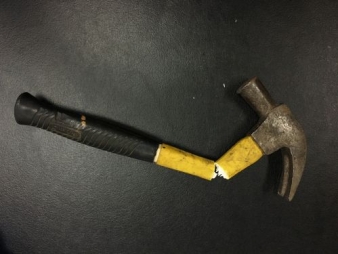Even though you or your business manufactures nothing, it, or you, may be subject to liability and very costly litigation defense under Ohio’s Product Liability Act.
Do you or your company sell, package or distribute products that are manufactured elsewhere?
Do you lease or label others’ products with your company’s name?
Do you install, repair or maintain products that you do not manufacture?
Do your employees alter, modify, or forget to maintain a third party’s products?
In any of these situations, your company or you are “suppliers” under Ohio law, and depending on circumstances that usually are not within the supplier’s control, if the product is defective in design or manufacture, the supplier can be liable for significant damages if the defective product is “a cause” of someone’s death, personal physical injury, severe emotional distress or damages to another’s property.
If the plaintiff is successful in proving that the defective product was a cause of this type of harm, the supplier could also be liable for the cost of the defective product, repair costs to make the defective product safe, the plaintiff”s lost income, and other direct or indirect financial loss. YIKES!
In addition, a supplier is subject to Ohio’s product liability law if the supplier knows about some defective aspect of the product, but doesn’t try to remediate it, or if the product does not live up to the supplier’s representation about the product.
There are defenses to product liability claims, but the smarter and better approach to doing business is to nip that liability in the bud before it arises.
Here are some scenarios that give rise to potential liability:
- Your company sells consumer products that are manufactured in a foreign country or other state in the U.S., but the manufacturer is not subject to judicial process in Ohio (that means the manufacturer can’t be sued here).
- Your company supplied a product manufactured by a company or person that is insolvent, bankrupt or otherwise not capable of satisfying a judgment awarded to the plaintiff.
- You or your company owns any part of the manufacturer (presumably even as a shareholder of the publicly traded manufacturer).
- The manufacturer owns any part of your company.
- You or your company asked the manufacturer to assemble the product to meet a specific application of your customer.
- Your employees or you modified, altered or failed to maintain the product and this action rendered the product defective.
- Your or your company marketed or labeled the defective product under your trade name or with your company’s name.
- Your employees or you failed to identify the manufacturer of the defective product to a claimant who was damaged by the product.
- Your employees or you knew that some aspect of the product was defective or dangerous, yet, it was sold or installed without advising your customer of that risk.
- Your sales representative or you made a representation about the product, but the product did not conform to that representation – and liability attaches even if the representation was not fraudulent, recklessly made or negligently made.
If you are engaged in business that involves any of these scenarios, you can be proactive to minimize, or sometimes eliminate, the risk.
Confirm that the manufacturer is subject to the jurisdiction of an Ohio court before distributing their products is prudent. Indemnity provisions in contractual relationships with the manufacturer is a potential solution, as are insurance riders on the manufacturers’ policies naming your company as an additional insured. Research the financial stability of the manufacturer and examine how it has addressed other claims and lawsuits against it in other jurisdictions. Confirm that your general liability policy includes product liability coverage. Advise your customer in writing that your company has altered the product, or has asked that manufacturer to modify it to meet the application, and seek approval from the manufacturer for use in the specified application. Make sure that sales representatives are trained in the application of the products and they do not oversell them. Installers should know all industry and trade standards and abide by them, as well as the specific instructions and warnings given by the manufacturer.
This is not an exhaustive set of considerations, and your individual facts and circumstances should be reviewed carefully with an able lawyer to develop the best proactive strategy to minimize the risk. Consultation combined with effective implementation of analysis and advice will increase safety, minimize loss of money and avoid lost productivity of your key personnel should a defective product that has passed through your business be a cause of someone’s loss.
Tagged In:Product Liability


